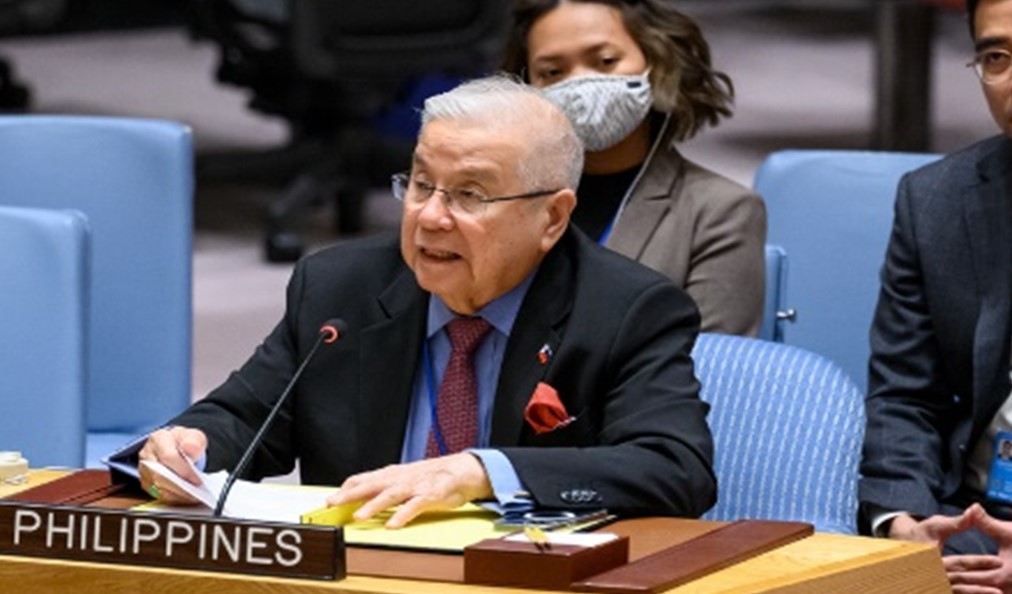 Ambassador Antonio M. Lagdameo delivers a statement at the UN Security Council Chamber during an open debate on the theme of “New Orientation of Reformed Multilateralism.” (Photo Credit: New York UN Photo Library)
Ambassador Antonio M. Lagdameo delivers a statement at the UN Security Council Chamber during an open debate on the theme of “New Orientation of Reformed Multilateralism.” (Photo Credit: New York UN Photo Library)
UNITED NATIONS, NEW YORK, 14 December 2022 – At the Ministerial Security Council Open Debate held today, Ambassador and Permanent Representative Antonio M. Lagdameo highlighted elements that could contribute to a reformed multilateralism and hence improve efforts towards international peace and security. The open debate on the “New Orientation of Reformed Multilateralism” under the “Maintenance of international peace and security” agenda item was the highlight of India’s Council presidency for the month of December 2022. Chaired by India’s Minister of External Affairs, Subrahmanyam Jaishankar, the meeting was participated by over 60 ministers, senior officials and high-level representatives.
In his intervention, Ambassador Lagdameo noted that “while the Security Council has had significant achievements in maintaining peace and security over the years, it has to contend with a great deal of setbacks especially with the current geopolitical environment.”
To instill new life in the discussions on Security Council reform, he said, “it is imperative that we go beyond what has been practiced for decades in the intergovernmental negotiations on Security Council reform.”
Ambassador Lagdameo said that among the important elements that could be considered, it is crucial to focus “on improving the working methods of the Security Council,” and improved working methods should aim at “more participation by non-members in the Council’s decision-making process, and more transparency and accountability of the Council to non-members.”
He also said that “an improved consultation mechanism between the Security Council and regional groups and subregional groups would be beneficial,” and that there is a need for the Council “to recognize the need to consistently and thoroughly consult regional groups on pressing and delicate matters that are specific to a particular region.”
Ambassador Lagdameo added that “One of the key elements of a reformed multilateral system is having an organization where all Member States, big or small, respect the rule of law and comply with the positive obligation, at all times, of peacefully resolving disputes in accordance with international law.” In this regard, he highlighted the importance of the Manila Declaration on the Peaceful Settlement of International Disputes which marks its 40th year of adoption this year.
In his remarks, Secretary-General Antonio Guterres reminded Member States that, indeed, the UN has saved millions of lives. However, he noted that “notwithstanding this important progress, we are still grappling with many of the same challenges we have faced for 76 years: inter-State wars, limits to our peacekeeping ability, terrorism, and a divided collective security system.”
Ambassador Lagdameo supported the call of Secretary-General Guterres for a New Agenda for Peace that seeks to allocate a greater role to the Security Council in conflict prevention. He also said that the Summit of the Future in 2024 would be an appropriate venue for further discussions on the security aspects of a reformed multilateralism.
For this Security Council Open Debate, India invited members of the Security Council and other states to focus on the key elements of a “new orientation” for a reformed multilateral system and the steps that are required to ensure that the Security Council reflects contemporary global realities. END


